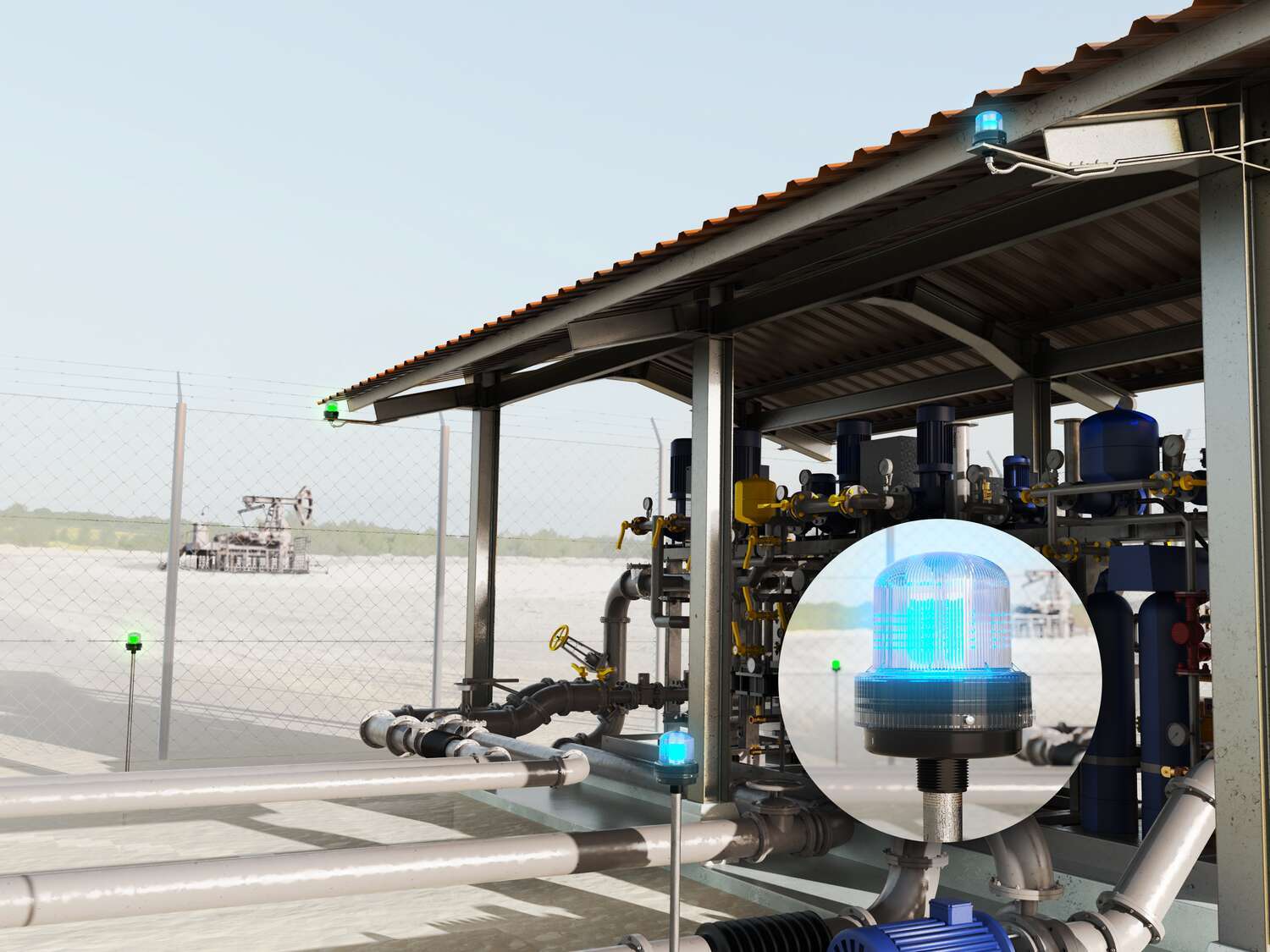Indicating the Status of a Pump Station

Challenge: Minimal Supervision in a Remote Area
For increased efficiency and safety, petroleum products on land are moved in a buried transmission pipeline. Due to the friction loss created by liquids moving through the piping, these pipelines experience pressure losses over the length of the pipe. To address this, pumping stations are located at regular intervals along the pipeline to boost the pressure to desired levels.
The manager of a pumping station was concerned with the lack of direct supervision at the site. This is a common challenge, as most stations are unmanned and located in sparsely populated areas. Many problems, such as a gas leak, can go unnoticed for prolonged periods of time unless the station is properly monitored. Swift detection of flammable gases—for instance, hydrogen and carbon dioxide—is essential to preventing leaks that could ignite. In addition, even after a problem is detected, the nearest fire and maintenance personnel may be too far away for a timely response. The station manager sought a solution that would withstand an outdoor environment and provide operators with distinct status indication of the pumping station right away.
Solution: Clear Status Visibility of Pump Station
Operators mounted K100 Pro Hazardous Beacons onto beams on both sides of the pumping station so they could easily identify the status of the station from any direction. The Daylight Visible model provided 360° visibility, as it was easy to see from afar, even in direct sunlight. With the use of Banner’s Pro Editor software, the lights were programmed to appear green to indicate normal conditions and blue to indicate that maintenance was required. When the K100s were blue, it meant that gases were present and while at safe levels, operators would need to wear the proper safety gear at the station. By using K100 Pro Hazardous Beacons to indicate station status, operators could see where the issue was occurring from a distance and respond with greater efficiency.
These lights were chosen due to their ability to withstand high temperatures and harsh outdoor conditions. Certified for use in settings in which flammable gases, vapors, mists, or dust are present, operators were confident that the K100 Pro Hazardous Beacon would provide reliable indication.